The Anti-Diva Diva Sings And Boy, What a Voice!
The dressing rooms at the Metropolitan Opera aren’t what you’d expect. They’re rather bare, furnished with just the basics. But Marianna Pizzolato’s bright star changes all that. The minute she enters she brightens the room with her warmth and personality. Over the course of our interview with the mezzo-soprano, it gradually dawns on us that she is the most anti-diva of divas. Our chat takes place, oddly enough, just before she jumps on stage to play the lead at the Metropolitan Opera. Pizzolato’s unexpected success made her a princess in a real-life fairytale. Unexpected not because she is unknown or untalented. On the contrary, she’s a star in Europe. Yet she had come to the Metropolitan to play a minor role. Then, out of the blue, she was tapped to play Isabella, the lead in L’Italiana in Algeri.
Becoming Isabella
The rst thing that took us by surprise was her decision on where to conduct the interview, which we had agreed to videotape for i-ItalyTV. Rather than in a television studio or hotel lobby, she’d chosen to sit down with us in her dressing room, in front of the mirror, while having her makeup done before going onstage. A rare choice for any performer. So we helped her prepare and put on her makeup while she talked about herself with candidness and a healthy dose of irony. She was generous with her time and, in the end, costume on, sat down at the piano and sang. But before that, at the start the interview, she wore no makeup at all. “I warm up when I look in the mirror. My thoughts are especially taken up with the action. Where will Isabella nd herself, where does she want to go tonight? It’s a work of the imagination, no?”
The Metropolitan Opera: A Rare Experience
Despite her obvious excitement, Marianna appears at total ease when she talks about the Met.
“The Metropolitan provides you with a rare experience. It’s different from all the other theaters in the world. It’s the biggest, the most important. It’s very demanding. I’m aware of that. But my happiness about being here trumps that. We feel very motivated. Obviously you’re more in your element in European theaters. Perhaps you speak the same language there. But I have to say that I really feel at home here, too.”
We waste no time inquiring about her being chosen to play the lead.
“How did I feel when I found out I’d be playing this role? They call me in to audition for L’Italiana in Algeri, which I know well. When I get there one of the managers
says, ‘Marianna, would you be willing to recite the whole thing?’ I started to cry. I’d never dreamed something so beautiful, so important. I was enormously moved. The audition was interrupted, obviously. People broke out in applause. Maestro James Levine hugged me and said some really wonderful things.”
Marianna Post-Fairytale Is Still Marianna
Many things changed after that day, but she makes a point of saying: “I’m still plain old Marianna. I’ve got the same spunk, joyfulness, passion. There’s much more to this work... there’s much more to music.”
It’s almost like Gioachino Rossini had chosen you for the role...
“Rossini chose me? No, Rossini didn’t choose Marianna Pizzolato! But when he wrote this opera he imagined a vocal range that, fortunately, I happen to possess. Isabella is an extraordinary character, one of the most fascinating women in the history of opera. Isabella travels all the way to Algeria to save her beloved, Lindoro, and uses every womanly weapon at her disposal. Including seduction. She does everything in her power to bring home the man she loves.”
Her Sicily, Her Palermo
Another subject beside music about which Marianna speaks with equal passion is Sicily. Born in Palermo, she grew up in the small city of Chiusa Sclafani and went on to study at the Bellini Conservatory in Palermo. Naturally, these days she travels a lot for work. But her compass still points to Palermo.
“Sicily is a way of being. I feel close to it because it embodies a marriage of cultures and contrasts. It blends together all sorts of colors and sensations: sun, sea, earth, mountain, volcano. I like being Sicilian. I couldn’t imagine myself otherwise. And it’s very important to return home. It’s like regaining a sense of yourself... There’s a Sicilian song that I really love that goes, ‘L’oduri di la zagari si senti.’ It means ‘You can smell the orange blossom.’ Even when I’m far away that verse calls up all sorts of Sicilian fragrances for me: the aforementioned orange blossom, almond ower, the dizzying smell of g trees in the summer, cyclamens, summer owers, the sea, the smell of sh. Which is to say, I travel, I sing all over the world, and then at a certain point I can’t help it, I have to go back.”
You can hear the island in her voice, singing through her.
“In a way, my voice represents Sicily. As a mezzo-soprano, I avail myself of great vocal range, for the very fact that mezzo-sopranos can go down as well as up in register. So there’s the earth and the air, spontaneity and instinct, and maybe a hint of genius.”
Genius Takes Practice, Practice, Practice
“To borrow a phrase of Gioachino Rossini: above all things, study. Art itself is study. Practicing singing is in direct proportion to success—it forms the basis of success. All the greats tell us how important studying is. They’ve shown us how fundamental it is in order to rise to the top. It’s a message for young people who want to get their break without seriously studying. They don’t last long. A year or two and it’s all over.”
Marianna becomes emotional on this point. She recalls:
“I come from a modest background. My family could never afford to pay for my schooling. It was hard. I had to work a lot. When I won a master’s in Piacenza, my father said, ‘If this is what you want, go ahead. But you’ll have to do it alone because I can’t help you. My smile and joy I can give. But that’s all.”
Hard work and determination.
“I did work hard. But I also have to say there were a lot of people along the way who gave me a hand. I never paid for singing lessons because my teacher, now 92, never charged me. She believed in my talent. Likewise, many others helped me continue and supported me economically.”
A Rebuke: It’s A World That Fails To Fully Reward Pure Talent
And there’s something else she’d like to talk about:
“Another great challenge that I faced—that I have to face often—is that this super cial world can place a premium on image and sometimes fails to fully reward pure talent. How many times have I found myself in the uncomfortable position of being judged for my physical appearance! It’s a personal challenge, sure, but I come up against it with the whole opera world. To get where I am for who I am and not what others want me to be. It is fundamental for me to demonstrate that I have talent, a voice, and that I can move onstage despite my physicality, my curviness.”
We ask her about debuting at the Metropolitan. How did she feel after the premiere?
“After taking my bow, I stood behind the curtains and thought to myself, ‘I did it! I sang at the Metropolitan Opera! That really happened!’ Up until that moment I’d felt like it was a dream. I still feel that way when I talk about it. Jean-Pierre Ponnelle’s production is a classic. Like all of his productions, it’s extraordinarily beautiful and elegant. The costumes are delicious. I love the greens, blues, reds, fuchsias, these Orientalish feathers. They’re very re ned. What can I say? I got to work with James Levine! And it all happened in a special place.”
The Business Of Selling Dreams
It’s like a fairytale within a fairytale...
“As a matter of fact it is a fairytale. In order to do theater you have to live in a fairytale. We’re paid to sell dreams. That’s what people want from the theater. Whether it’s opera, classical music, a symphony or something else. They want to dream and we’re in the business of selling dreams.”
So what’s it like to act out a fairytale for four hours?
“It totally frees you from this world. Starting here, in the dressing room. You get ready, put on your makeup, meet the makeup artist and costume designers, and gradually you enter another dimension.”
Marianna In Her Youth
Our talk of fairytales continues, but Marianna paints a portrait of herself as a child not given to ights of fancy.
“I was a bit different growing up. I lived in a small town. My life was very simple. I didn’t begin to dream big until I realized I’d been chosen by music. Music chose me, not the other way around. That’s when it dawned on me that my life might be changing. I was already a grownup. I was working for the local municipality. There was every indication I’d lead a normal life. But that turned out not to be the case. It was a complete reversal and came as a shock to my parents when I told them I was leaving my job to study music, to become, you know, a lyric singer.”
Come Back Soon
Her stay at the Metropolitan lasted but a few weeks. Now she’s back on the road, traveling from one theater to another. Only this time New York seems to be saying: come back soon. The feeling is mutual.
“What does New York mean to me? I hate to rehash a bunch of clichés, but it really is the center of the world. Things do happen here. I’m living proof of that. Plus I have a lot of very close friends in the city, some but not all Italians. When I come here I come face to face with the world, and that can be an incredible boost of energy. That’s what I love about New York.”
And those of us here look forward to her return. We look forward to the return of her elegant, entrancing, animated voice; the kindness she conveys with a look; her boundless love for music.
Click here to see the interview >>>






























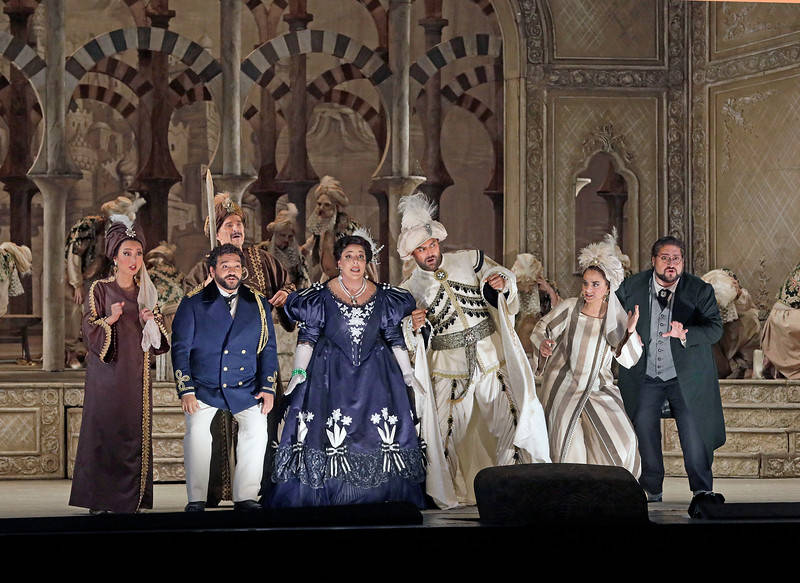
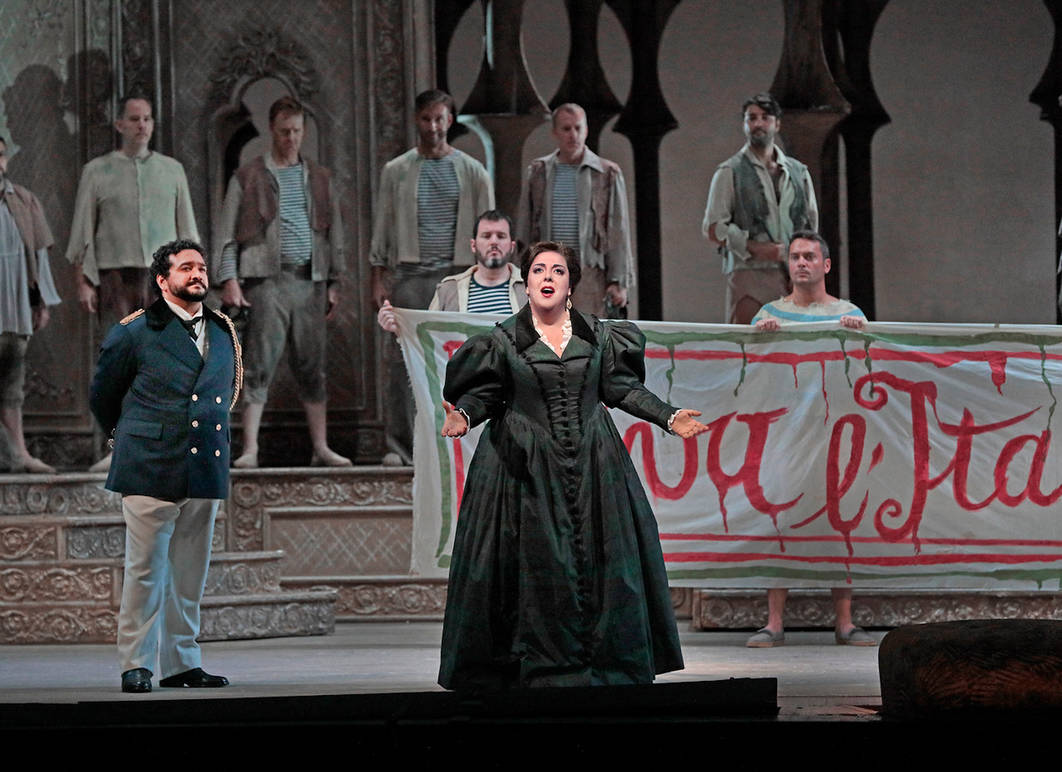

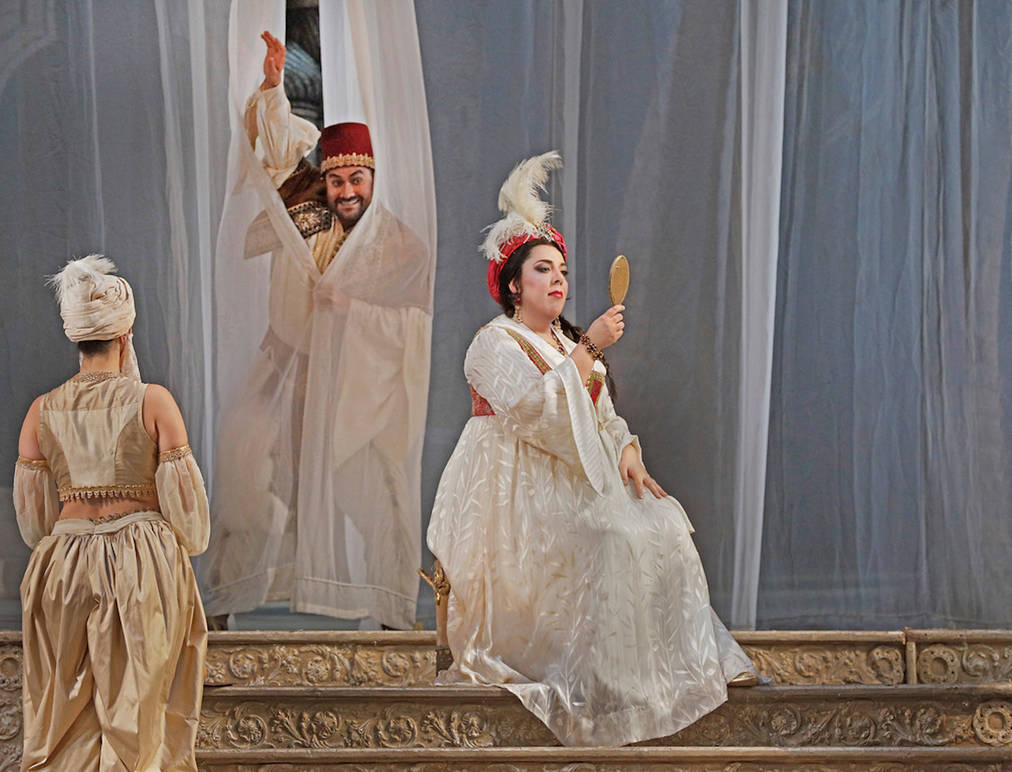

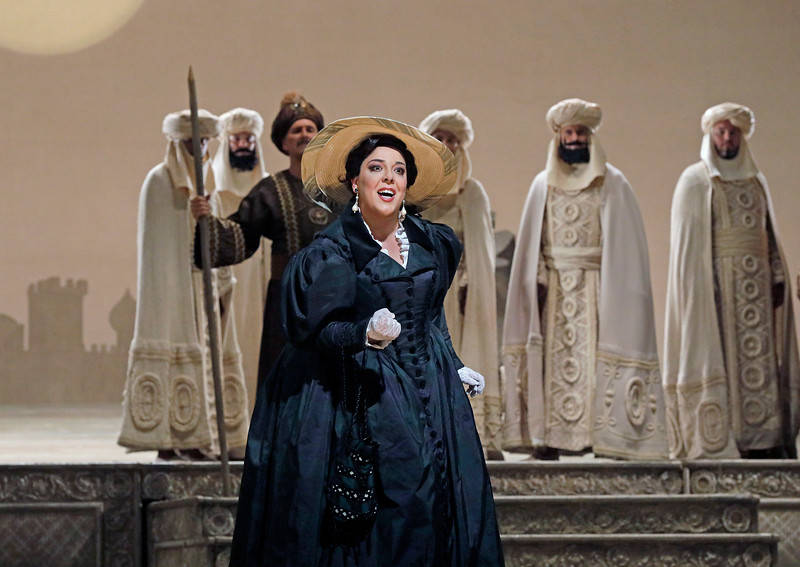





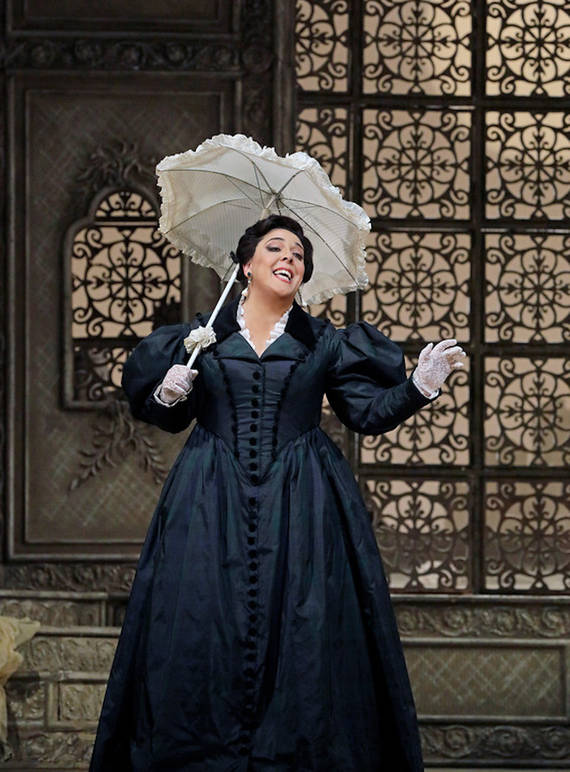
i-Italy
Facebook
Google+
This work may not be reproduced, in whole or in part, without prior written permission.
Questo lavoro non può essere riprodotto, in tutto o in parte, senza permesso scritto.